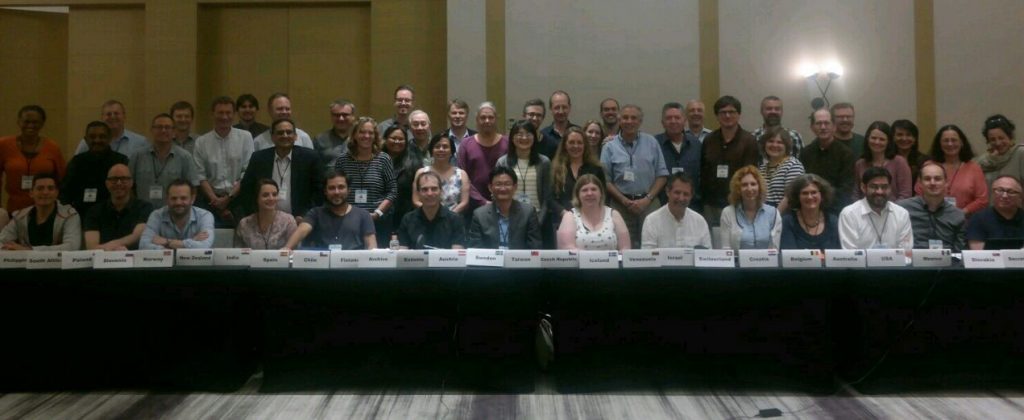The International Social Survey Program
Contributed by Tom W. Smith (NORC at the University of Chicago)
The International Social Survey Program (http://www.issp.org) was founded in 1984 by Australia (Research School for Social Science, Australian National University), Germany (then ZUMA, now GESIS), Great Britain (then Social and Community Planning Research, now the National Centre for Social Research), and the United States (NORC @ the University of Chicago). Since 1985 ISSP has conducted an annual cross-national survey. It has grown from the founding four to having involved 60 countries and through 2015 has conducted 817 nationally-representative surveys with over 1.1 million respondents.
The latest ISSP plenary meeting was held April 28-May 2, 2018 in Guadalajara, Mexico and hosted by the ISSP Mexican member – the Institute of Marketing and Opinion (IMO) (http://www.imocorp.com.mx/imo2/ ). Attending members appear below:

At the 2018 meeting the ISSP finalized the content of Social Inequality V as its 2019 topic, selected the themes for Environment IV as its 2020 topic, and chose Health Policy II as its 2021 topic. All ISSP topics go through a 3-year development cycle with the topic being selected in year 1, the main themes of the topic chosen in year 2, and the items finalized in year 3. A draft group leads this development process, but all decisions are made by the plenary meetings. Almost all topics are updates of previous ISSP surveys. This allows the study of societal change in cross-national perspective.
Thanks to a generous grant from the Templeton Religion Trust, Religion IV, the 2018 ISSP topic, will also be fielded in 15 non-ISSP member countries in North Africa and the Middle East, Sub-Saharan Africa, and East and South Asia. This grant will notably expand coverage especially among nations representing religious traditions underrepresented among ISSP members (Buddhism, Hinduism, and Islam).


